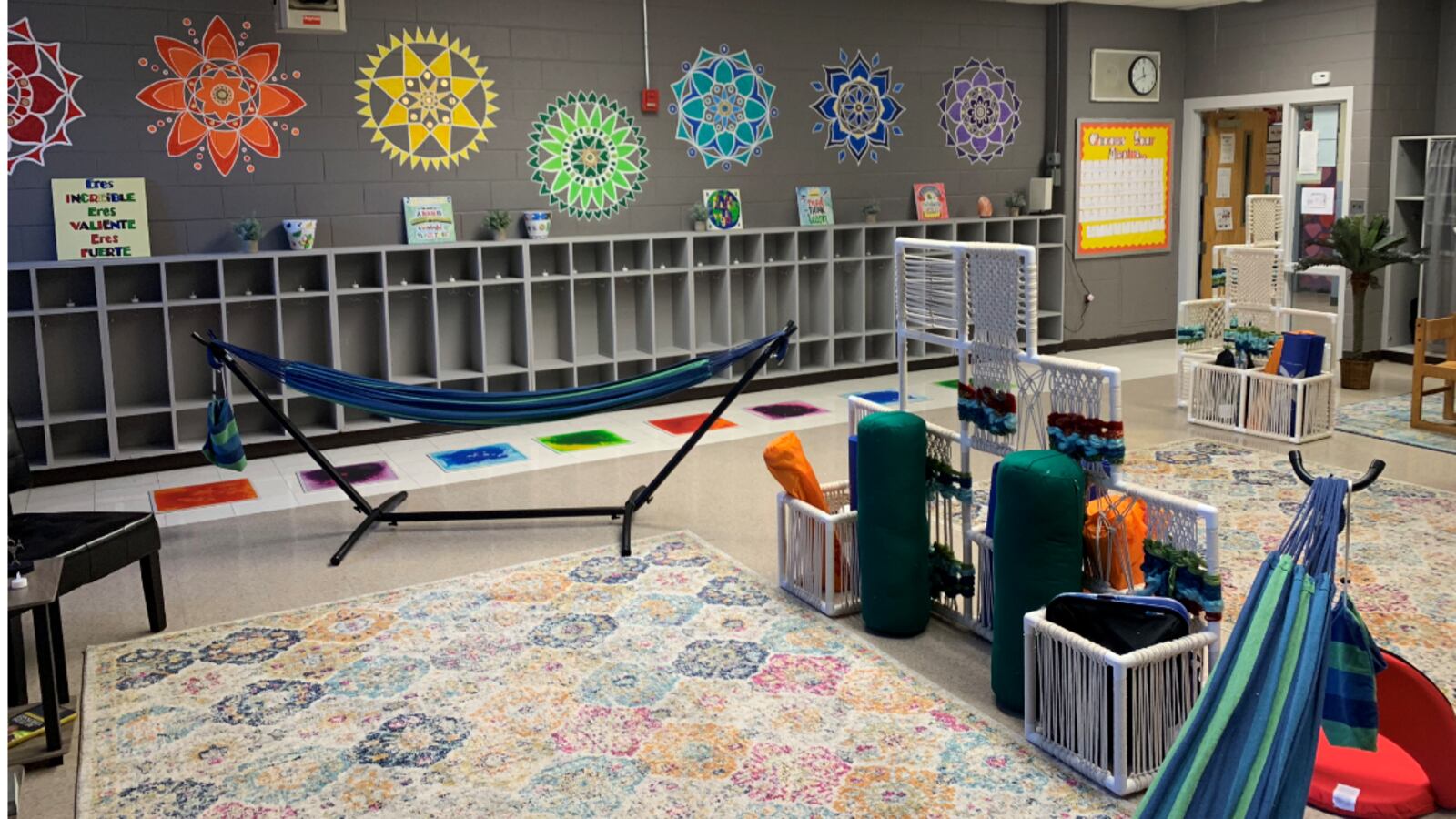With an infusion of new resources, Newark schools are taking steps to help students deal with trauma — offering them services ranging from counseling support to “grief baskets” to a school-based relaxation room.
Almost half of New Jersey’s children have experienced trauma. These experiences, such as abuse, violence, and neglect, can negatively affect classroom performance, physical and behavioral health, and can increase the likelihood of ending up behind bars. Childhood trauma has been found to affect black and Hispanic students disproportionately, and about 90% of Newark students are black or Hispanic.
“We know that our students are impacted in profound ways,” Superintendent Roger León said during a discussion about the need for more student mental health resources at an October school board meeting. “Our students suffer this incredible wound of being a child in Newark.”
Newark schools were awarded $6.5 million in grant money last fall to serve students affected by trauma, on the heels of new legislation requiring all New Jersey public schools to teach about mental health. The grant funds will help train school staff, increase student mental health counseling services, and develop a pipeline of school psychologists for high-needs schools. And local campuses are taking various approaches to help students and families.
This past fall, the district’s student life team completed a number of visits to families affected by trauma and gave students “grief baskets” that include blankets, games, and art supplies. Subsequently, Newark Public Schools’ Executive Director of Student Life Maria Ortiz announced in January that the district would also distribute funeral resources and information about dealing with grief to families in need.
Meanwhile, Sussex Avenue School opened “The Hammock” in January, a room equipped with actual hammocks where staff and students can relax and do yoga — activities shown to help individuals who have experienced trauma. And elsewhere in the city, Science Park High School students created a mental health club in 2018, after an unspecified mental health “incident.”
Student mental health is a recurring topic at school board meetings, and addressing such needs are among the goals in León’s district plan for the year.
State data show that there was one counselor for every 654 students in Newark during the 2017-2018 school year. León, at a board retreat in August, put that number a little lower, saying that Newark high schools get one counselor per 500 students. (Newark Public Schools did not respond to Chalkbeat’s requests for comment.) Regardless, those numbers are a far cry from the American School Counselor Association’s recommended rate of one counselor per 250 students.
To help provide additional support, the district has contracted Rainbows for All Children, an organization that helps youth navigate grief and trauma, to train Newark school staff to support struggling students. After about 15 district staff members undergo training, they will be placed at two high schools and two elementary schools in each of Newark’s wards. School selection will be based on whether schools have been identified as having significant trauma.
“This is very much about addressing adverse childhood experiences and offering prevention and intervention so you can prevent poor health outcomes from them,” said Laura Lindroth, Rainbows programming and community engagement director. “It doesn’t matter what loss the child has been through — this program gives them the things they need to get through and heal.”
While it represents a new investment in student well-being, the program will build on previous work the district has done to address students’ mental health needs.
The Newark Trust for Education has led social-emotional learning initiatives, which develop children’s interpersonal skills and address their mental health, in Newark schools for the past several years. Executive Director Ron Chaluisan said social-emotional learning is a critical element of public education.
“Helping young people develop those [social and emotional] skills is part of the educational process that ultimately leads to positive student outcomes,” he said. “There are circumstances that our kids face that need to be addressed, and school systems should have the resources to do that.”
Going forward, León said he plans to create an overarching system that addresses students’ social and emotional needs. He’s deemed it a priority, noting that things have changed since he was a student in Newark.
“Things that were easily resolved by us much younger are not by children today,” León said in October. “I tell my students they’ve passed the hardest test of all — and not a standardized test. They passed the test of living in Newark, New Jersey. No other test is going to be harder than that.”

